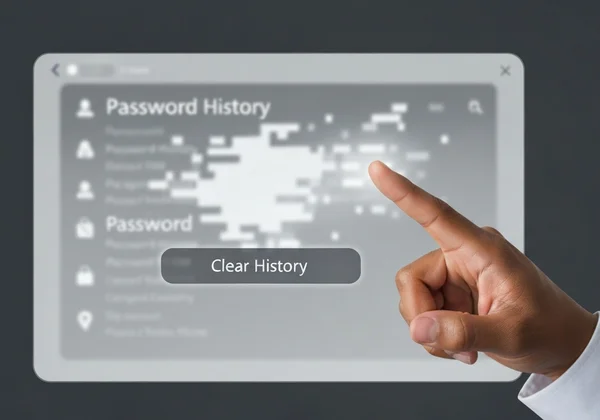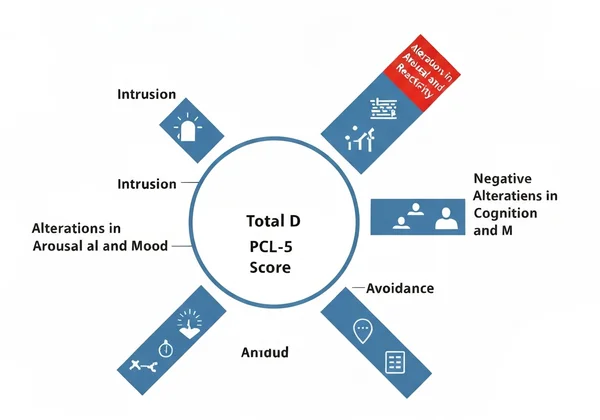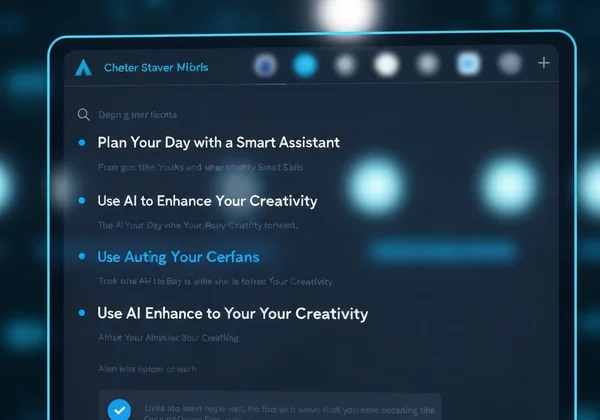Giải mã Báo cáo AI PCL-5 của bạn: Hiểu biết chuyên sâu cá nhân hóa về PTSD
September 15, 2025 | By Camila Jensen
Bạn đã thực hiện bước đầu tiên bằng cách hoàn thành bài đánh giá PCL-5. Mặc dù một điểm số là một cột mốc quan trọng, nhưng nó thường đặt ra một câu hỏi then chốt: Điểm PCL-5 có ý nghĩa gì đối với cuộc sống độc đáo của bạn? Một con số đơn thuần có thể cảm thấy trừu tượng. Sức mạnh thực sự đến từ việc biến dữ liệu đó thành một hành trình phát triển và chữa lành. Đây là lúc Báo cáo AI PCL-5 cho đánh giá PCL-5 xuất hiện, làm cầu nối giữa một điểm số đơn giản và những hiểu biết sâu sắc, cá nhân hóa. Đó là một hướng dẫn về các mô hình đằng sau cảm xúc của bạn, vượt ra ngoài điểm số mức độ nghiêm trọng chung để phác họa trải nghiệm cá nhân của bạn với các triệu chứng liên quan đến chấn thương. Nếu bạn đã sẵn sàng khám phá những gì nằm ngoài con số, bạn có thể nhận thông tin chi tiết hơn trên nền tảng của chúng tôi.

Lợi ích của Báo cáo AI PCL-5 đối với hành trình PTSD của bạn là gì?
Ưu điểm chính của Báo cáo AI là dịch bảng câu hỏi PCL-5 tiêu chuẩn hóa thành câu chuyện độc đáo của bạn. Nó đặt câu trả lời của bạn vào ngữ cảnh, mang lại sự rõ ràng mà một điểm số đơn giản không thể. Bằng cách phân tích phản hồi của bạn dựa trên các khuôn khổ tâm lý đã được thiết lập và thông tin nền tảng tùy chọn mà bạn cung cấp, AI tạo ra một báo cáo có cơ sở khoa học và mang tính cá nhân sâu sắc. Quá trình này làm sáng tỏ cách các triệu chứng có thể liên kết với nhau hoặc biểu hiện trong thói quen hàng ngày và các mối quan hệ của bạn. Đó là một công cụ vô giá cho sự phát triển cá nhân hoặc để tạo điều kiện cho các cuộc trò chuyện hiệu quả hơn với chuyên gia sức khỏe tâm thần.
Vượt ra ngoài một điểm số duy nhất: Phân tích triệu chứng toàn diện
Điểm PCL-5 cung cấp hình ảnh tổng quan về mức độ nghiêm trọng của triệu chứng, nhưng báo cáo AI cung cấp bức tranh đầy đủ. Bài kiểm tra PCL-5 dựa trên bốn nhóm triệu chứng PTSD chính từ tiêu chí DSM-5: Xâm nhập, Tránh né, Thay đổi tiêu cực trong nhận thức và tâm trạng, và Thay đổi trong kích thích và phản ứng. Mặc dù tổng điểm của bạn tóm tắt những điều này, nhưng phân tích triệu chứng toàn diện trong báo cáo sẽ chia nhỏ chúng. Hãy tưởng tượng không chỉ nhìn thấy tổng điểm của bạn, mà còn biết rằng những thách thức của bạn tập trung vào nhóm "Kích thích và phản ứng". Điều này giúp xác định rằng các vấn đề như cáu kỉnh hoặc dễ giật mình là nguyên nhân chính gây ra đau khổ. Chi tiết này cung cấp sự hiểu biết rõ ràng về những gì đang xảy ra, đây là bước đầu tiên hướng tới quản lý hiệu quả.

Hiểu biết chuyên sâu cá nhân hóa về PTSD tác động đến cuộc sống hàng ngày như thế nào
Hiểu các nhóm triệu chứng của bạn là điều mạnh mẽ, nhưng báo cáo AI kết nối chúng với cuộc sống hàng ngày của bạn. Hiểu biết chuyên sâu cá nhân hóa về PTSD mà nó tạo ra là thực tế và dễ hiểu. Ví dụ, báo cáo có thể giải thích cách khó khăn trong việc tập trung (một triệu chứng của Thay đổi tiêu cực trong nhận thức) có thể ảnh hưởng đến hiệu suất công việc, hoặc cách tê liệt cảm xúc có thể tạo ra khoảng cách trong các mối quan hệ. Bằng cách vẽ ra những đường thẳng trực tiếp giữa các triệu chứng và tác động trong thế giới thực, báo cáo nuôi dưỡng sự tự nhận thức sâu sắc. Sự hiểu biết này giúp bạn nhận biết các yếu tố kích hoạt, dự đoán thách thức và phát triển các chiến lược đối phó chủ động. Báo cáo cung cấp lời khuyên hành động được điều chỉnh theo những hiểu biết này, mang lại cho bạn các bước cụ thể để cải thiện sức khỏe của bạn.
Quy trình đánh giá sức khỏe tâm thần bằng AI: Cách thức hoạt động
Minh bạch là chìa khóa để xây dựng lòng tin. Đánh giá sức khỏe tâm thần bằng AI của chúng tôi không phải là một hộp đen; đó là một công cụ tinh vi được xây dựng dựa trên các nguyên tắc tâm lý học đã được thiết lập. Công cụ AI xử lý phản hồi bài kiểm tra PCL-5 bảo mật của bạn bằng cách sử dụng thuật toán xử lý ngôn ngữ tự nhiên và nhận dạng mẫu dựa trên nghiên cứu lâm sàng liên quan đến PTSD và DSM-5. Hệ thống phân tích tần suất và cường độ của các triệu chứng được báo cáo của bạn để xác định các chủ đề và mô hình nổi bật. Quá trình này an toàn, bảo mật và dựa trên khoa học tâm lý, đảm bảo những hiểu biết đáng tin cậy.
Đầu vào của bạn: Cung cấp năng lượng cho phân tích PTSD tùy chỉnh
PCL-5 tiêu chuẩn là một công cụ sàng lọc mạnh mẽ, nhưng báo cáo AI của chúng tôi đạt được mức độ cá nhân hóa cao hơn bằng cách kết hợp ngữ cảnh tùy chọn mà bạn cung cấp, cho phép một phân tích PTSD tùy chỉnh thực sự. Sau khi nhận được điểm số ban đầu, bạn có thể chia sẻ thông tin nền tảng chung, ẩn danh về hoàn cảnh cuộc sống hoặc mục tiêu cá nhân của bạn. Dữ liệu này cho phép AI điều chỉnh phân tích một cách chính xác. Biết liệu người dùng là sinh viên hay người đã nghỉ hưu, hoặc vật lộn với giấc ngủ hay lo lắng xã hội, cho phép AI đưa ra phản hồi và đề xuất phù hợp nhất với tình huống của họ.
Diễn giải các khuyến nghị của AI cho các bước hành động
Có lẽ thành phần giá trị nhất của báo cáo là sự tập trung vào tương lai. Nó vượt ra ngoài việc giải thích các triệu chứng hiện tại để đưa ra diễn giải các khuyến nghị của AI cho các bước hành động. Nó không chỉ cho bạn biết "điều gì" đang xảy ra; nó gợi ý "nên làm gì tiếp theo". Đây không phải là những lời khuyên chung chung mà được liên kết trực tiếp với các mô hình triệu chứng cụ thể được xác định trong phân tích của bạn. Ví dụ, nếu báo cáo của bạn làm nổi bật suy nghĩ xâm nhập, các khuyến nghị có thể bao gồm các kỹ thuật định tâm. Nếu tránh né là một chủ đề chính, nó có thể gợi ý các bước nhỏ, dễ quản lý để tham gia lại vào các tình huống bị tránh né, lý tưởng nhất là với sự hỗ trợ chuyên nghiệp. Những khuyến nghị này là điểm khởi đầu thiết thực để giúp bạn vững bước trên con đường phục hồi của bạn. Bạn có thể khám phá kết quả của mình và xem con đường chúng soi sáng.

Tối đa hóa sự hiểu biết của bạn về phân tích AI để tự chăm sóc
Nhận báo cáo do AI điều khiển là một bước quan trọng. Tối đa hóa sự hiểu biết về phân tích AI của bạn là rất quan trọng để biến những hiểu biết của nó thành việc tự chăm sóc có ý nghĩa. Hãy coi báo cáo như một hướng dẫn sử dụng cá nhân hóa cho tâm trí của bạn. Đọc kỹ, suy ngẫm về những phát hiện của nó và ghi lại những điểm nào cộng hưởng nhất với trải nghiệm sống của bạn. Báo cáo có thể là một công cụ mạnh mẽ để viết nhật ký, giúp bạn khám phá suy nghĩ của mình với sự rõ ràng hơn. Nó cũng có thể khơi dậy các cuộc trò chuyện với những người thân yêu, cung cấp ngôn ngữ để giải thích trải nghiệm của bạn. Sử dụng sự hiểu biết này để xây dựng một thói quen tự chăm sóc từ bi và hiệu quả hơn.
Tích hợp kết quả báo cáo với hướng dẫn chuyên nghiệp
Điều cần thiết là phải nhấn mạnh rằng bài kiểm tra PCL-5 và báo cáo do AI tạo ra là công cụ thông tin, không phải công cụ chẩn đoán. Chúng được thiết kế để bổ sung, không thay thế, lời khuyên y tế chuyên nghiệp. Cách hiệu quả nhất để sử dụng báo cáo của bạn là bằng cách tích hợp kết quả báo cáo với hướng dẫn chuyên nghiệp. Chia sẻ báo cáo của bạn với một nhà trị liệu, cố vấn hoặc bác sĩ có thể tạo ra một điểm khởi đầu mạnh mẽ để thảo luận. Báo cáo của bạn cung cấp tổng quan có cấu trúc về các triệu chứng của bạn, điều này có thể giúp chuyên gia sức khỏe tâm thần hiểu nhanh hơn, sâu hơn về tình huống của bạn, làm cho các buổi trị liệu hiệu quả hơn. Luôn tham khảo ý kiến của nhà cung cấp dịch vụ chăm sóc sức khỏe có trình độ để được chẩn đoán và lập kế hoạch điều trị chính thức.

Ví dụ thực tế: Cách người dùng hưởng lợi từ Báo cáo AI PCL-5
Để minh họa giá trị thực tế, hãy xem xét các tình huống người dùng ẩn danh sau. Một người dùng đạt điểm cao về cảnh giác quá mức đã nhận được một báo cáo liên kết điều này với những khó khăn ở những nơi đông người. Lời khuyên hành động tập trung vào các kỹ thuật làm dịu để sử dụng trước khi vào những môi trường như vậy, giúp họ lấy lại quyền kiểm soát. Một người dùng khác vật lộn với sự tách rời. Báo cáo AI của họ đã làm nổi bật điều này như một phần của nhóm "Thay đổi tiêu cực trong tâm trạng", liên kết nó với việc họ tránh né các sự kiện xã hội. Các khuyến nghị cá nhân hóa gợi ý bắt đầu với các tương tác ngắn, nhẹ nhàng với một người bạn đáng tin cậy. Những ví dụ này cho thấy cách báo cáo chuyển dữ liệu thành các chiến lược hữu hình.
Con đường tiến lên vững chắc của bạn với Báo cáo AI PCL-5
Điểm PCL-5 của bạn là một điểm khởi đầu. Báo cáo AI PCL-5 giúp bạn hiểu câu chuyện đằng sau con số, cung cấp một phân tích cá nhân hóa và có thể hành động để giúp bạn vững bước trên con đường hồi phục. Bằng cách làm nổi bật các nhóm triệu chứng cụ thể, kết nối chúng với cuộc sống hàng ngày và cung cấp các khuyến nghị phù hợp, báo cáo đóng vai trò là một hướng dẫn độc đáo cho việc tự khám phá và là một tài sản quý giá cho các cuộc tư vấn chuyên nghiệp. Nếu bạn đã sẵn sàng biến điểm PCL-5 của mình thành một lộ trình cho sức khỏe, hãy mở khóa báo cáo của bạn và thực hiện bước tiếp theo để hiểu sâu hơn về bản thân ngay hôm nay.
Các câu hỏi thường gặp về Báo cáo AI PCL-5
Báo cáo AI nâng cao điểm PCL-5 cơ bản của tôi như thế nào?
Điểm PCL-5 cơ bản của bạn cung cấp xếp hạng mức độ nghiêm trọng tổng thể. Báo cáo AI nâng cao điều này bằng cách chia nhỏ điểm của bạn thành bốn nhóm triệu chứng PTSD cốt lõi (xâm nhập, tránh né, tâm trạng/nhận thức tiêu cực, và kích thích/phản ứng). Nó cung cấp phân tích chi tiết về những thách thức và điểm mạnh cụ thể của bạn, kết nối chúng với các tình huống thực tế và cung cấp các khuyến nghị cá nhân hóa, có thể hành động để tiến lên.
Báo cáo AI PCL-5 có thể cung cấp chẩn đoán PTSD không?
Không. Điều quan trọng là phải hiểu rằng bài đánh giá PCL-5 và báo cáo AI là công cụ sàng lọc, không phải công cụ chẩn đoán. Chúng có thể cung cấp những hiểu biết có giá trị về các triệu chứng và mức độ nghiêm trọng của chúng, nhưng chúng không thể thay thế một đánh giá toàn diện bởi một chuyên gia sức khỏe tâm thần có trình độ. Chúng tôi đặc biệt khuyên bạn nên thảo luận kết quả từ bài kiểm tra PCL-5 với bác sĩ hoặc nhà trị liệu để được chẩn đoán chính xác.
Báo cáo AI cung cấp loại khuyến nghị cá nhân hóa nào?
Các khuyến nghị được điều chỉnh theo hồ sơ triệu chứng độc đáo của bạn. Ví dụ, nếu báo cáo của bạn cho thấy mức độ kích thích cao, nó có thể gợi ý các bài tập định tâm cụ thể hoặc thực hành vệ sinh giấc ngủ. Nếu nó làm nổi bật các thách thức nhận thức như tự trách mình, nó có thể khuyến nghị gợi ý viết nhật ký hoặc kỹ thuật tái cấu trúc nhận thức cơ bản để thảo luận với nhà trị liệu. Lời khuyên được thiết kế để trở thành một điểm khởi đầu thiết thực cho việc tự chăm sóc và điều trị chuyên nghiệp.
Dữ liệu của tôi có an toàn khi sử dụng đánh giá sức khỏe tâm thần bằng AI PCL-5 không?
Tuyệt đối. Chúng tôi ưu tiên quyền riêng tư và bảo mật của bạn trên hết. Toàn bộ quá trình, từ việc thực hiện bảng câu hỏi PCL-5 ban đầu đến tạo báo cáo AI, được thiết kế để an toàn và ẩn danh. Chúng tôi sử dụng mã hóa mạnh mẽ và tuân thủ các chính sách bảo vệ dữ liệu nghiêm ngặt để đảm bảo thông tin của bạn vẫn an toàn và riêng tư.